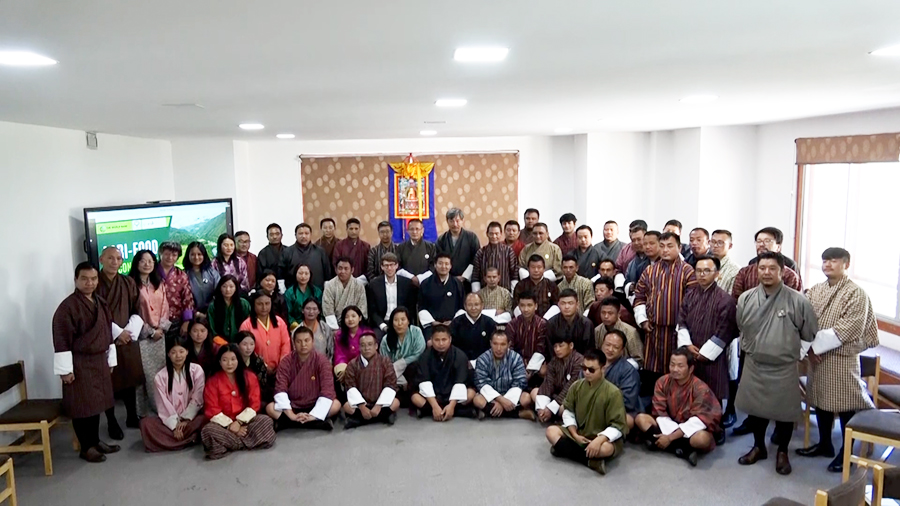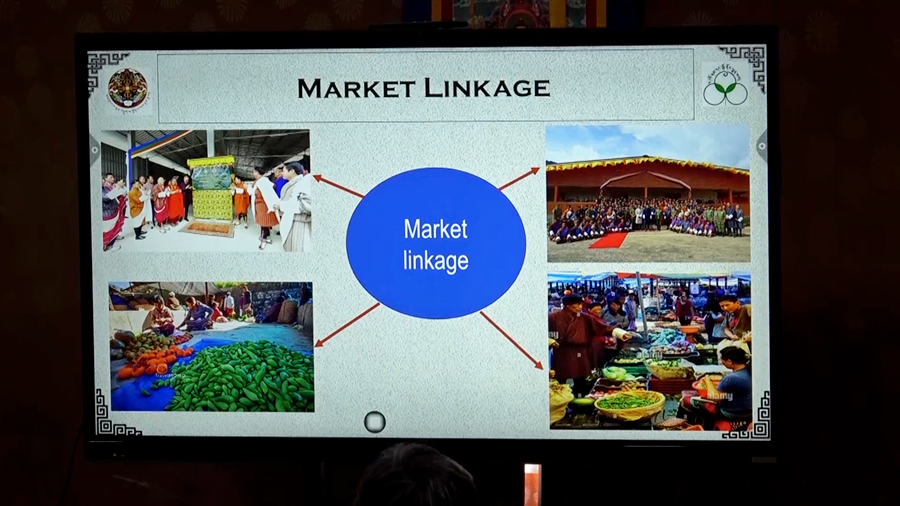
During an agri-food conference held in the capital, today, agri-food enterprises and aggregators called for improved market linkages. Agri-food encompasses all aspects of production, processing, distribution, and consumption of food derived from agriculture. According to the Department of Agricultural Marketing and Cooperatives, DAMC, Bhutan’s agri-food system faces a disconnect between the supply and demand for farm produce.
 While farmers complain about the lack of markets for selling their farm produce, agri-food entrepreneurs said that they lack raw materials to develop new products domestically.
While farmers complain about the lack of markets for selling their farm produce, agri-food entrepreneurs said that they lack raw materials to develop new products domestically.
During the conference, agri-food enterprises said that they often struggle to find sources for affordable agricultural produce for their products.
Sonam Chokie, an entrepreneur said “though we do make use of the district’s agriculture extension officers, there is no proper data. So, we do not know, which area has what farmers and what can they grow. So, if there is abundant data for us, it would be really helpful for us.”
Meanwhile, farmers at the conference said that they have better access to markets now compared to the past. However, some challenges still persist for certain farmers.
Rinchen Dorji, a farmer said “in the past, the rural areas were not able to sell farm produce like cabbages. They did even have the idea to auction the produce. One year after the aggregators were appointed, we looked into a market and what produce do they demand, and accordingly, informed farmers about it.”
Godhak Singh Galley, another farmer said “for selling the farm produce, the marketing and linkages were not good in the past. We had to search the market and sell on our own.”
Tashi Dorji, the director of the Department of Agricultural Marketing and Cooperatives said “recently, Trongsa had a high tomato production, but there was not much buyer in the district market. Even if we transport the produce to another district, the expenditure incurred during the transport spikes the prices way more than those imported from India.”
To address this issue, the ministry plans to launch an online platform to improve coordination and balance demand and supply.
Tashi Dorji added that “for now, we have started a small WhatsApp group for buyers and sellers, while including those who are not in the group. However, for long-term, this approach might not work. That is why, we need to create an online platform for the issue.”
Meanwhile, the World Bank organised the conference to foster partnerships between farmers, agri-food enterprises, and aggregators.
Held every six months, the event intends to strengthen linkages between buyers and sellers.
Joachim Vandercasteelen, an economist with the World Bank said “going forward, we see that many who met during that event, the buyer-seller meet, are now still in contact and are still trying to have linkages going forward in the next production season.”
He added that at such events, buyers commit to purchasing a certain volume of produce directly from farmers or through aggregators.
The conference is funded by the South Asian Policy Leadership for Improved Nutrition and Growth project.
Singye Dema & Tashi Dekar
Edited by Sherub Dorji







